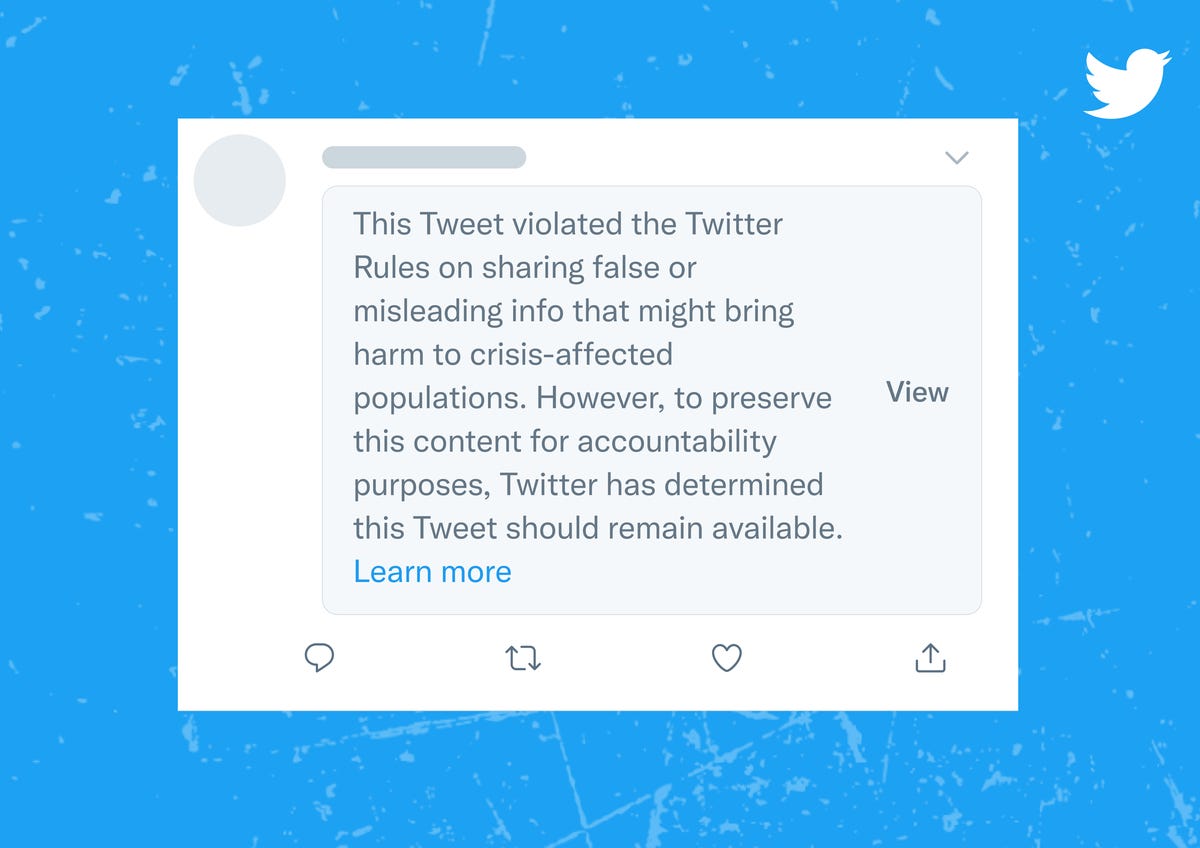Twitter to hide misleading tweets under new crisis response policy

Twitter has introduced its crisis information policy to ensure that any misleading tweets are not amplified or recommended during crises in a further attempt to stamp out misinformation.
Under the policy, Twitter said as soon as it has evidence that a tweet is misleading it will be slapped with a warning notice which will also feature a link to more details about the crisis misinformation policy; likes, retweets and shares will be turned off; and the content would not be recommended across the service and be stopped from surfacing on the home page, search, or explore.
Twitter added it will also prioritise adding warning notices to highly visible tweets and tweets from high-profile accounts, such as state-affiliated media accounts, verified, or official government accounts.
To determine whether a claim is misleading, Twitter said it will require verification from multiple credible, publicly available sources, including evidence from conflict monitoring groups, humanitarian organisations, open-source investigators, journalists, and more.
Some examples of tweets that might be flagged under the new policy, said Twitter, include false on-the-ground event reporting, false or misleading allegations of war crimes, mass atrocities, or use of weapons, and false information about international sanctions, community response, or humanitarian operations.
Users who do want to continue to read tweets that have been slapped with a misinformation warning will have to click through the notice to view it. In the past, misinformation warnings did not cover up a tweet — it was labelled under the tweet.
According to Twitter, the first iteration of the policy will focus on misinformation around the war in Ukraine, but planned updates will see the policy expanded to include additional forms of crises.
“Down the line, as we expand our approach, we will enforce around other emergent global crises, informed by the United Nations Inter-Agency Standing Committee (IASC)’s emergency response framework, and other global humanitarian frameworks,” Twitter said in a blog post.
The introduction of the policy comes timely as the social media giant awaits the finalisation of its $44 billion acquisition deal with Elon Musk, which was been put on hold for the last week after the billionaire said he needs more detail about the level of spam and fake accounts that exists on Twitter and suggested he may lower his original offer.
Must read: Musk did not seek due diligence and the $44b deal will be completed: Twitter
Since revealing his acquisition plans, Musk has also been forthcoming about his position on banning people from the social media platform. Earlier this month, he labelled the decision by Twitter to permanently suspend former US President Donald Trump’s account as “morally bad”, “foolish in the extreme”, and “flat-out stupid”.
He also delivered a similar message when he announced his billion-dollar deal with Twitter where he described “free speech” as the “bedrock of a functioning democracy, and that “Twitter is the digital town square where matters vital to the future of humanity are debated”.
Despite Musk’s stand for free speech, a recent filing revealed that he would be happy to get the Twitter deal done with the backing of noted bastions of repression, Qatar and Saudi Arabia.
Also on Friday, Business Insider reported that based on documents obtained by the publication, a SpaceX flight attendant alleged that Musk exposed himself and propositioned her for sex, and Musk’s aerospace firm paid the flight attendant $250,000 to settle the sexual misconduct claim against him in 2018.
Related Coverage
READ MORE HERE


